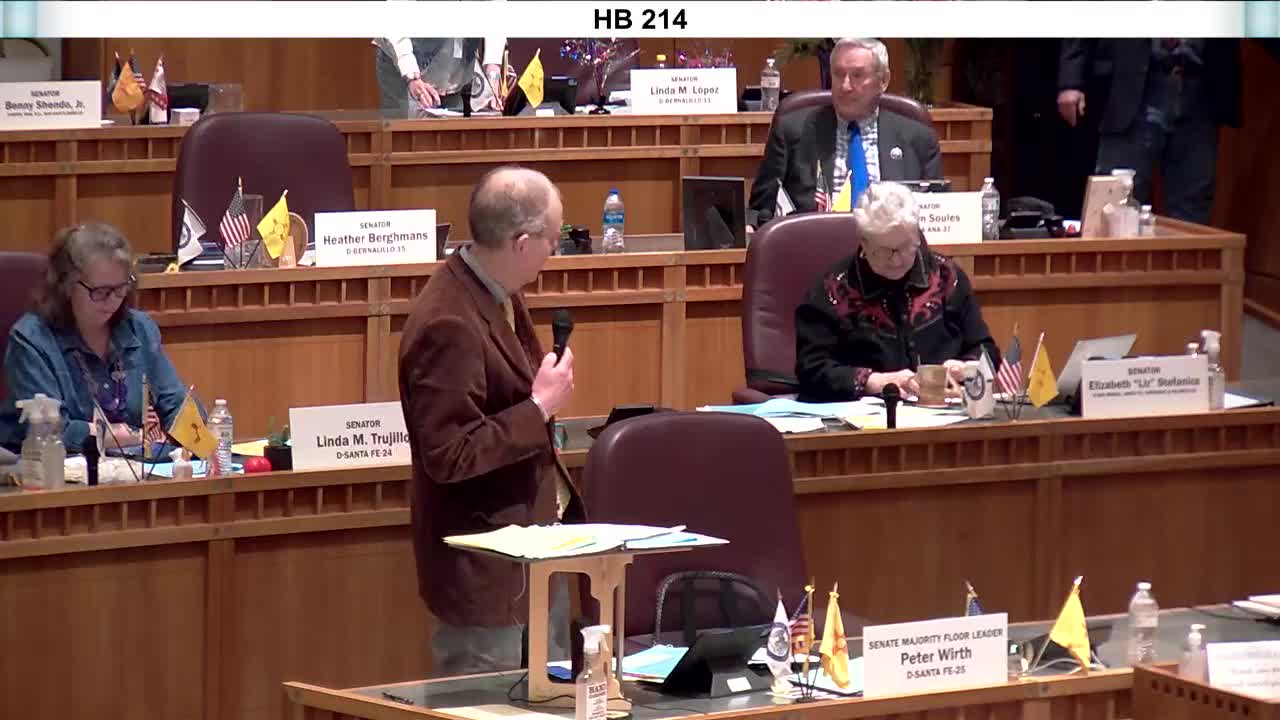Senate increases workers' compensation attorney fee cap and discovery allowances after lengthy debate
Get AI-powered insights, summaries, and transcripts
Subscribe
Summary
After extended floor debate and multiple questions from senators, the Senate approved House Judiciary Committee substitute for House Bill 66 to raise the lifetime attorney fee cap and increase discovery cost allowances in the workers' compensation system, with step-up increases and a 2029 advisory review.
The Senate voted 25‑14 to approve House Judiciary Committee substitute for House Bill 66, a measure that raises the lifetime attorney fee cap and modestly increases discovery cost allowances in the state's workers' compensation system.
Senator Wirth, explaining the bill, said the changes follow recommendations from a task force that included employers, insurers and workers' representatives. Sponsors framed the bill as an inflation‑adjustment to fee limits that have not been increased since 2013, preserving access to counsel for complex cases.
Under the House substitute described on the floor, the allowable attorney fee cap would be $30,000 in calendar year 2025, step to $32,000 on January 1, 2027, and to $34,000 by January 1, 2029. The bill also raises discovery cost allowances (the money advanced to cover discovery), which had not been updated since 2003. The floor exchange included examples of lengthy cases and concerns about attorney incentives to take complex matters.
Senators pressed sponsors on potential cost impacts. Senator Woods and others asked whether higher fees would be borne by claimants, employers or insurers. Sponsors and an expert witness explained that fee allocation depends on statutory offer/acceptance rules and judicial allocations; in many cases fees are split roughly 50/50, but judges allocate fees based on offers and outcomes. Senators also discussed an “uninsured employers fund” that pays benefits when employers lack required insurance; sponsors said that fund exists but did not provide a current balance on the floor.
Supporters, including Senator Sedillo Lopez, argued fee increases are necessary to ensure attorneys take complex, long‑running cases, citing examples of seven‑year cases. Opponents raised concerns about tying fees to inflation automatically; sponsors said the bill does not index fees to CPI but uses scheduled step increases and directs the advisory council on workers' compensation to review fees and discovery costs by May 1, 2029.
The Senate vote was recorded after an open roll-call-style reading of senators voting no; the chair announced passage. The bill will proceed to enrollment and any remaining legislative steps.
— End —
